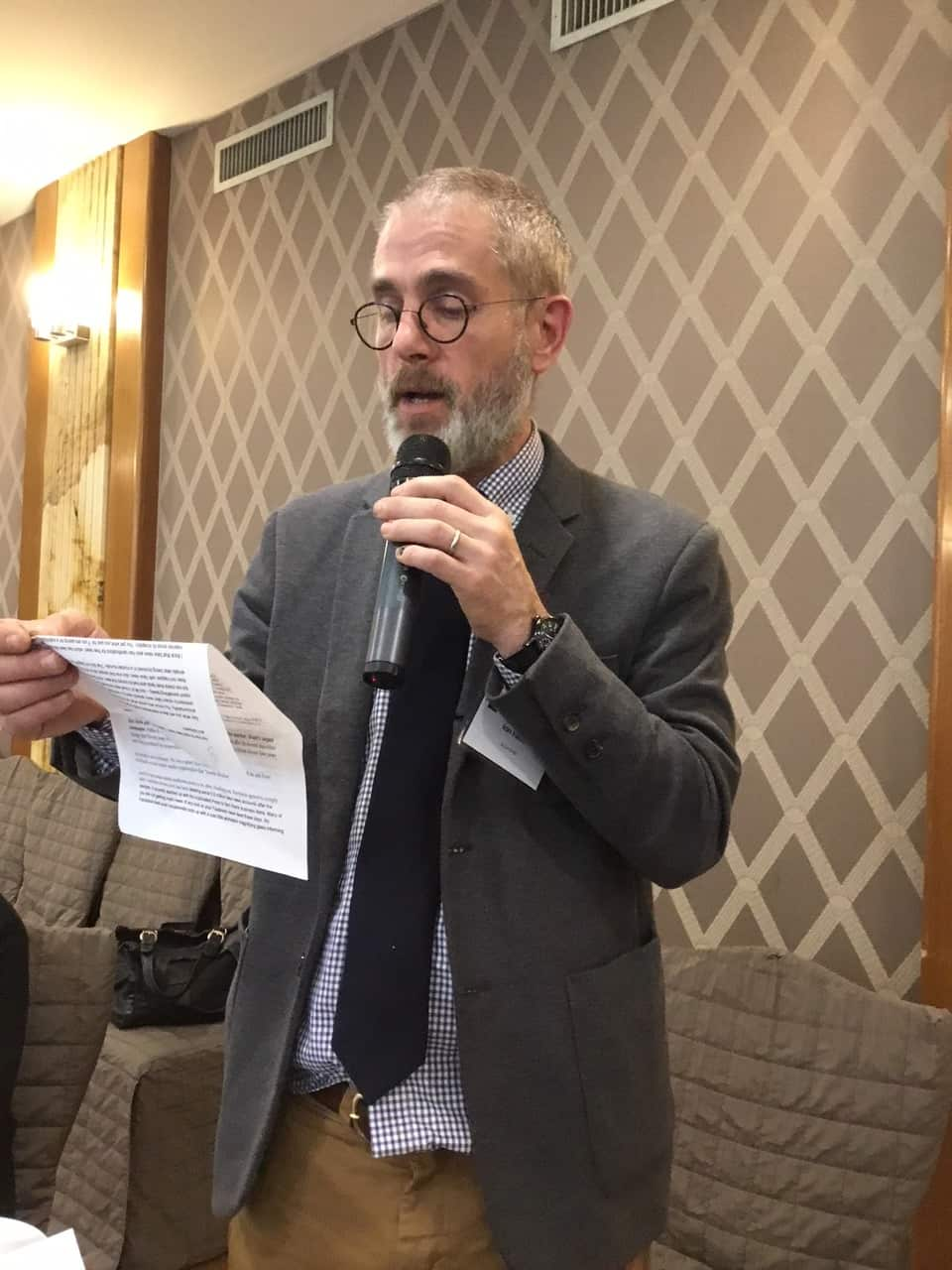
“’Fake news’ is not just one thing,” emphasized Ian Fisher in a talk before a group of American and international business people in Milan on March 15. Fisher knows whereof he speaks; as a veteran reporter and editor for the New York Times, he has been sifting truth from spin in 6o countries on three continents for 27 years.
He pointed out that the parameters of “fake news” keep changing: From inaugural crowd size 14 months ago, the focus has shifted to Stormy porn. In the last month alone Mueller’s investigations have proven that the Russians played a role in influencing the 2016 presidential election. Fisher noted that the US, Russia, and others have meddled in elections before, but the current situation is new: The Internet can divide the general public into smaller groups that “want to be deceived” as long as what they are reading is compatible with what they want to believe.
This cognitive dissonance is “information tribalism,” claims Fisher, and is exacerbated by social media. He cited a recent study showing that falsehoods travel six times faster on the web than truthful statements. Other research suggests that nearly 150 million Facebook and Instagram users may have seen paid ads and posts distributed by Russian trolls.
There is no such thing as harmless information, said Fisher, quoting Pope Francesco, and made a number of observations about fake news today:
· Trump has tweeted the term “fake news” 180 times.
· Mainstream media does tend to lean left but professional journalists try to get their facts correctly, regardless of their slant, and the far right engages more in fake news than the left.
· Fake news may not matter in most elections. Studies suggest that verifiably fake news websites are visited by those who are already believers, so their views would not be changed anyway.
· However, in close races, fake news sites can make a difference, such as in the states of Michigan, Wisconsin, Pennsylvania, and Ohio in 2016.
· Advertisers are unhappy, Fisher notes, so Facebook has changed its algorithms to stop favoring fake news, and twitter is trying to block bots.
Fisher bracketed his observations by emphasizing that his personal political views were not relevant to his remarks. All media have an inherent slant, he said; what is important is accuracy and fairness in reporting. “ With mainstream media, you know who wrote what. If they err, they make corrections. This is not the case with fake news.”
- Story written by Claudia Flisi for Democrats Abroad Italy (March 16, 2018)


